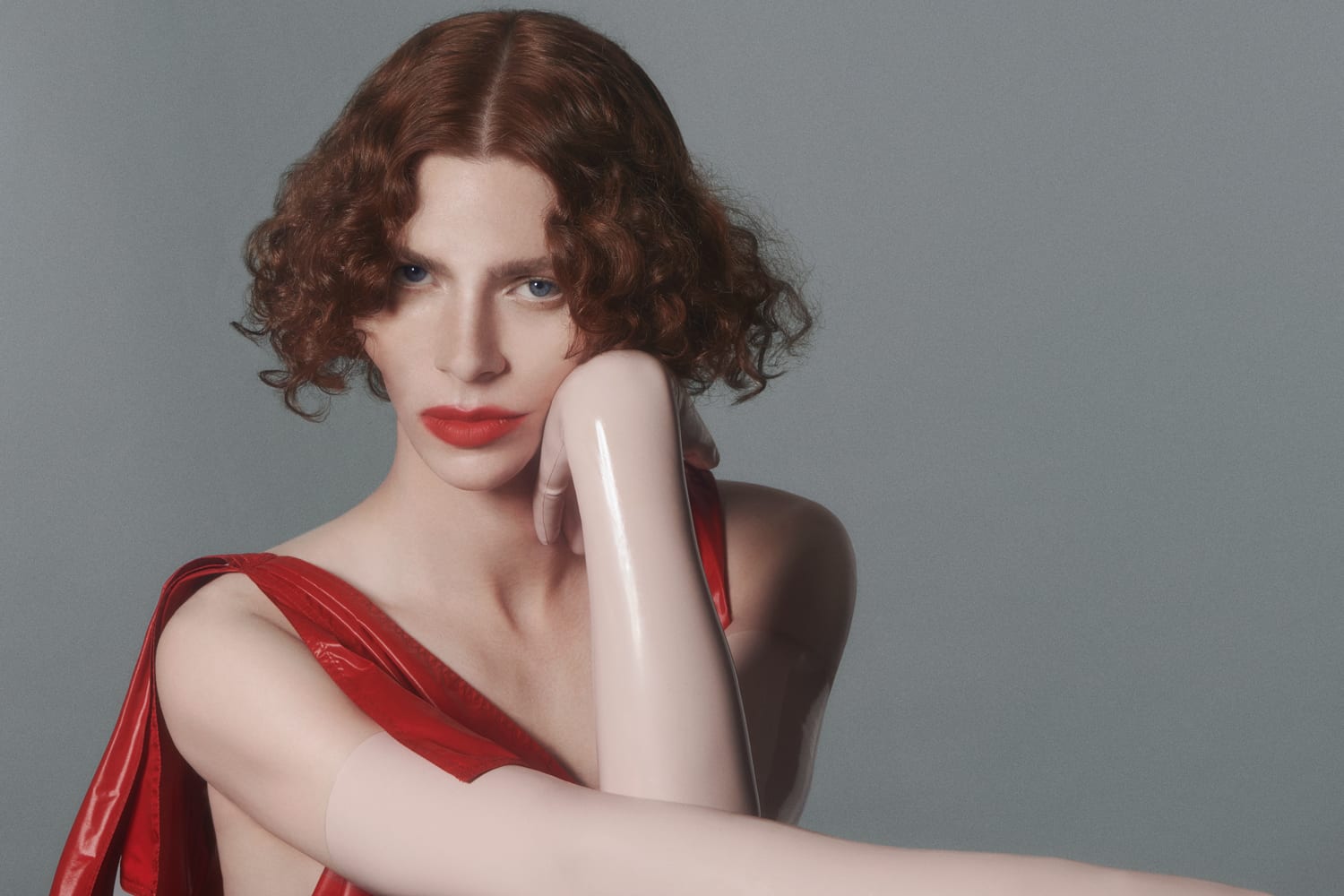On Jan. 30, trans electronic performer and music producer Sophie Xeon died at the age of 34, following an accident in Athens. Best known by her stage name, SOPHIE, posts from close friends of hers filled the internet that morning alluding to a tragedy, including a post of a black square on Instagram by model and former partner Tzef Montana. The news was later confirmed by SOPHIE’s management team in a message in the New York Times that said, “True to her spirituality she had climbed up to watch the full moon and accidentally slipped and fell.”
Born in Glasgow, Scotland, and raised on electronic music and in rave scenes, SOPHIE was a seminally innovative artist, electronic music producer, musician, DJ and more. She emerged onto the scene as an enigmatic and elusive performer and was anonymous for the initial stages of her career, her true identity shrouded in secret as she rose to prominence in the U.K. electronic pop scene. After releasing her hit single Nothing More To Say, SOPHIE quickly established herself as an unparalleled creative force. Her work was singular and involved, building soundscapes around the listener instead of relying on pre-generated samples. She would often craft and sample her own organic sounds like the prominent “plop” of bubbles popping in the single Lemonade (which was used in a McDonald’s commercial to promote their—you guessed it—lemonade). SOPHIE’s early singles were eventually collected in the compilation album Product, released on Glasgow-based record label/club promotional outlet Numbers in 2015.
More than just a beloved musician and songwriter, SOPHIE was a prominent and sought-after producer. She produced Charli XCX’s Vroom Vroom EP, worked with Vince Staples on Big Fish Theory (particularly the song “Yeah Yeah Yeah”) and produced Madonna’s 2015 single “Bitch, I’m Madonna,” which went on to become her first Billboard 100 charting single in three years.
For the first few years of her career, SOPHIE kept her identity hidden through various techniques. She had stand-ins lip sync her performances, modulated her voice in interviews and covered her body whenever possible. With synthesized and pitch-shifted vocals on her singles, Sophie’s gender was a constant source of speculation and discussion—some going so far as to accuse the artist of appropriating a woman’s identity for the sake of artistry.
These rumours were sufficiently quelled when SOPHIE publicly came out as trans in 2017, coinciding with the release of the single “It’s Okay To Cry,” the opening track of her debut album, Oil of Every Pearl’s Un-Insides (2018). The track itself is a stark departure from her earlier work, laying bare her vocals as unsynthesized for the first time. The ballad is an ethereal dreamscape; wistful, yearning and self reflective. In the track’s video, SOPHIE presents herself to the world for the first time, bust singing and dancing as a clear sky turns to clouds, then to storm, then to a night sky before finally giving way to the expanse of space.
“It’s Okay To Cry” presents a vulnerability and openness that stands in contrast to the rest of the record, which dances freely between genres as widespread as EDM to synthpop to ambient soundscapes. Ponyboy, the second track off the record, drops in hard to deliver the musical thesis statement of the album. It’s an industrial banger with aggressive percussion and distorted vocals, an absolute monster dance track. By Faceshifting, we’re exploring themes of gender and SOPHIE’s interest in transhumanism underneath hyperpop beats once more.
Oil of Every Pearl’s Un-Insides was nominated for a Grammy award for best dance/electronic album in 2018, losing to French electronic duo Justice’s Woman Worldwide. SOPHIE is one of three trans women, alongside Teddy Geiger and Jackie Shane, to be nominated for a Grammy award. To date, the only openly trans person to win a Grammy award was Wendy Carlos in 1969 for her album Switched On Bach.
“SOPHIE spoke openly and fondly of transness in interviews, and her love for trans people was intertwined with everything she did.”
With the release of It’s Okay To Cry, the topic of SOPHIE’s transness became dominant on everyone’s mind. Finally, the elusive performer’s identity was revealed. In an interview with Paper magazine, SOPHIE described her perception of her identity: “As a trans individual, it’s more about going through a personal journey of discovering yourself. There’s something a lot more spiritual about that, and what’s possible once you reach that place is the ability to then look at other people not with judgement—not like anyone’s trying to take anything away from you, but with an openness.”
SOPHIE spoke openly and fondly of transness in interviews and her love for trans people was intertwined with everything she did. “God is trans,” she responded when asked about her religious beliefs. SOPHIE didn’t make art about being trans; rather, she made art imbued with transness in all of its pieces.
SOPHIE was beloved and respected as an artist for her sheer talent, and not tokenized for being a trans woman in an industry that is still largely subjected to a heteronormative cisgender gaze. The LGBTQ2S+ community is especially saddened by her loss, with fans, artists and collaborators taking to the internet to express their grief over her death.
SOPHIE’s representatives released a statement saying: “At this time, respect and privacy for the family is our priority. We would also ask for respect for SOPHIE’s fanbase, and to treat the private nature of this news with sensitivity.”
Rest in peace SOPHIE. The full moon will always be yours.


 Why you can trust Xtra
Why you can trust Xtra


